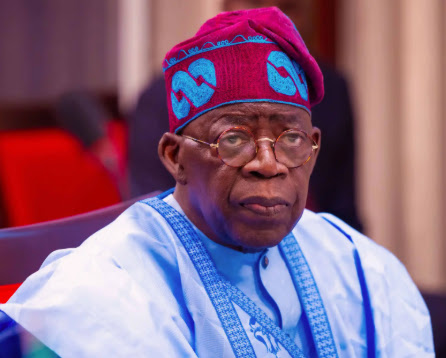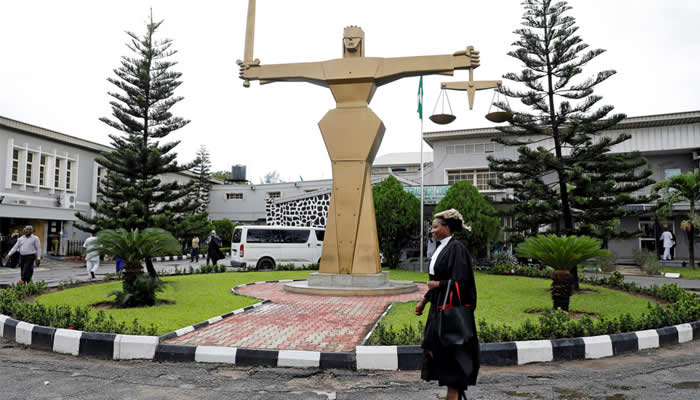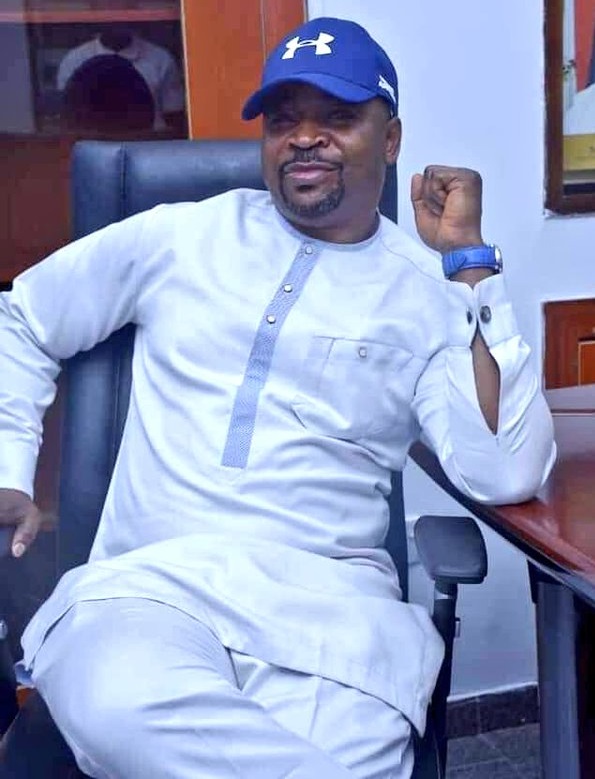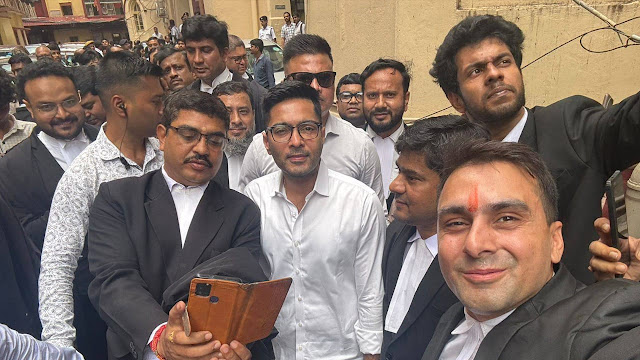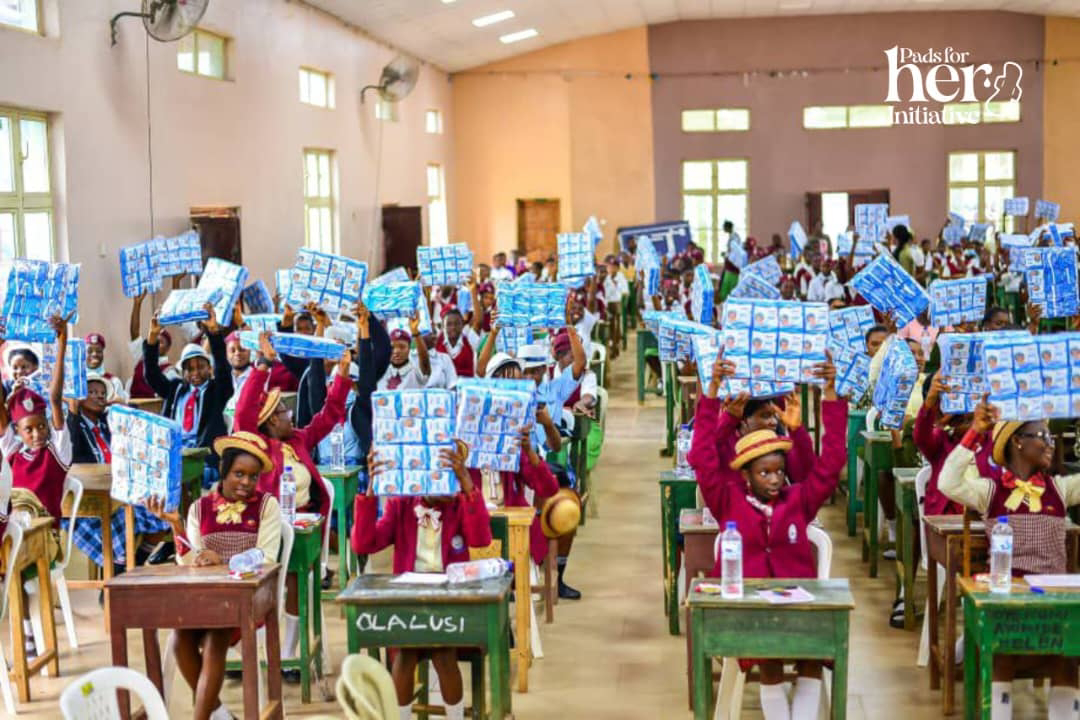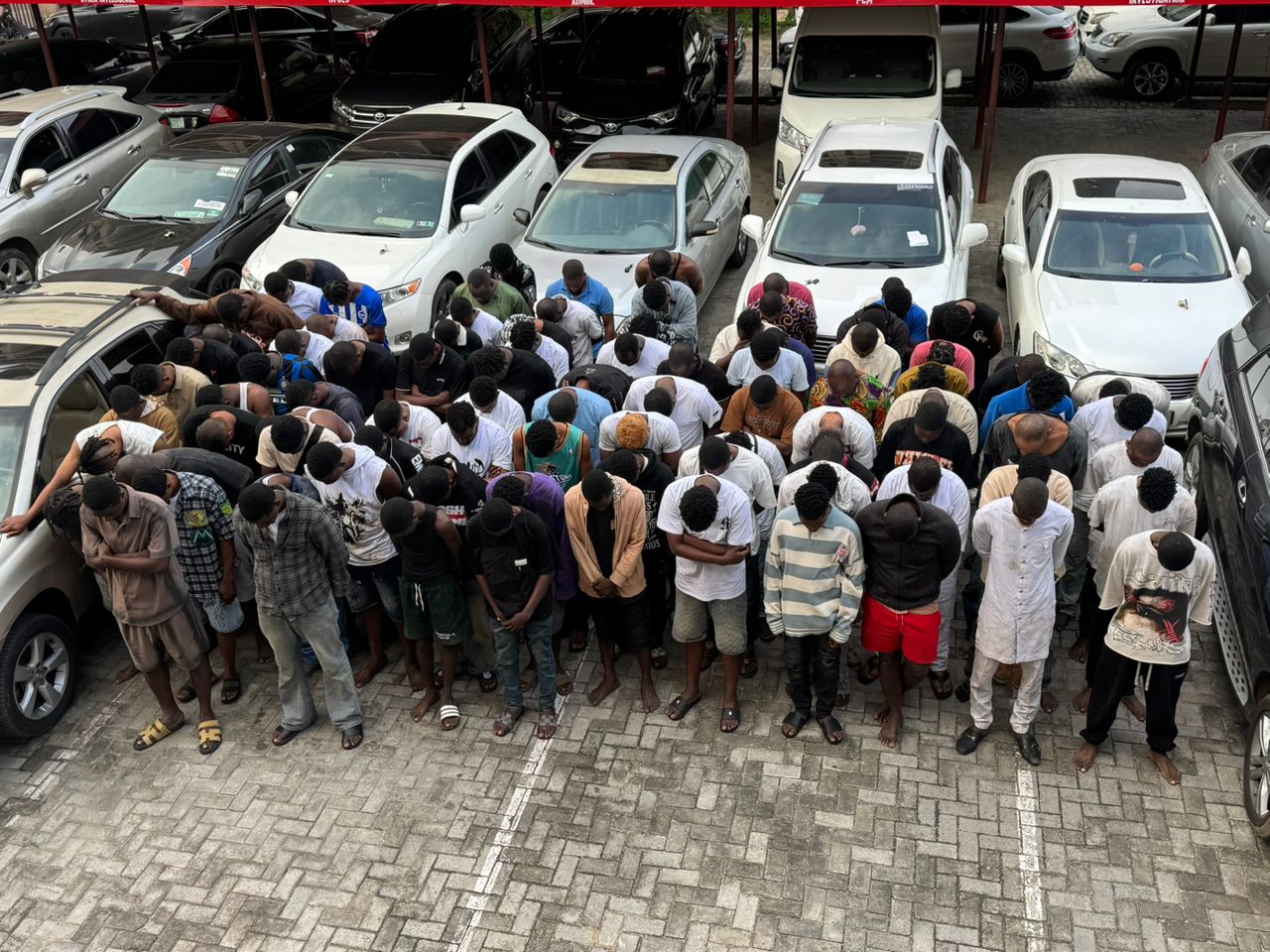ABUJA, Nigeria – August 25, 2025 – As Nigeria’s political landscape heats up in anticipation of the 2027 presidential election, the ruling All Progressives Congress (APC) is grappling with a deepening internal divide over its electoral strategy, particularly the contentious issue of the Muslim-Muslim ticket that propelled President Bola Ahmed Tinubu to victory in 2023. The North-Central APC Forum has issued a stark warning, cautioning that President Tinubu risks losing up to 80 percent of northern Muslim votes if he succumbs to mounting pressure to replace Vice President Kashim Shettima with a Christian running mate. The debate, which has reignited tensions over religious representation in Nigerian politics, underscores the delicate balance of faith, regional dynamics, and electoral pragmatism that will shape the APC’s path to retaining power.
In a strongly worded statement issued in Abuja and signed by its chairman, Alhaji Saleh Zazzaga, a key figure in the APC’s 2023 campaign council, the North-Central APC Forum described the growing calls for a religiously balanced ticket as a calculated ploy to undermine Tinubu’s re-election prospects and fracture the northern voting bloc that was instrumental in his 2023 victory. The statement has sparked a firestorm of reactions, with critics arguing that the APC’s insistence on maintaining the Muslim-Muslim ticket could alienate Christian voters, particularly in the Middle Belt, while supporters contend that abandoning the formula risks jeopardizing the party’s northern Muslim base.
The Muslim-Muslim Ticket: A Winning Formula or a Divisive Gamble?
The Muslim-Muslim ticket, featuring President Tinubu, a Muslim from the South-West, and Vice President Shettima, a Muslim from the North-East, was a bold and polarizing strategy in the 2023 election. Defying conventional wisdom that emphasized religious balance in Nigeria’s diverse society, the APC’s decision to field two Muslim candidates paid off, securing a narrow victory over opposition candidates, including Peter Obi of the Labour Party and Atiku Abubakar of the Peoples Democratic Party (PDP). The ticket resonated strongly with northern Muslim voters, who form a significant electoral bloc, particularly in states like Kano, Katsina, and Borno. However, it also sparked controversy, with Christian groups and minority communities in the North accusing the APC of sidelining Nigeria’s Christian population.
The North-Central APC Forum’s statement defends the Muslim-Muslim ticket as the cornerstone of Tinubu’s electoral success, arguing that it remains the party’s strongest strategy for 2027. “The Muslim-Muslim ticket was not a fluke; it was a deliberate and effective strategy that delivered victory in 2023,” Zazzaga stated. “Any attempt to abandon it now would be political suicide, particularly in the North, where Muslim voters played a pivotal role in securing Tinubu’s mandate.”
The Forum’s position is rooted in electoral pragmatism, emphasizing the numerical strength of northern Muslim voters and their historical loyalty to the APC. According to data from the Independent National Electoral Commission (INEC), Tinubu won significant majorities in northern states with large Muslim populations, including Kano (54%), Katsina (60%), and Borno (58%), in 2023. These victories were critical in offsetting losses in Christian-majority states like Plateau, Nasarawa, and the Federal Capital Territory (FCT), where Peter Obi’s Labour Party dominated.
Rising Opposition to the Muslim-Muslim Ticket
Despite the electoral success of the Muslim-Muslim ticket, opposition to its continuation is growing, particularly among Christian groups and northern minority communities. The Northern Ethnic Nationality Forum, led by Dominic Alancha, has emerged as a vocal critic, arguing that the APC cannot afford to repeat the 2023 formula. During a recent appearance on Channels Television’s Politics Today, Alancha warned that the Muslim-Muslim ticket has already eroded Tinubu’s support in the Middle Belt, a region where Christian voters hold significant sway. “The APC lost Plateau, Nasarawa, and the FCT in 2023 because Christian voters felt marginalized by the Muslim-Muslim ticket,” Alancha said. “If the party persists with this strategy, it risks losing even more ground in 2027.”
The Middle Belt, encompassing states like Benue, Plateau, Nasarawa, and parts of Kogi and Niger, is a critical battleground in Nigerian politics. The region’s diverse population, which includes a mix of Christian and Muslim communities, has historically been a swing area in national elections. In 2023, Peter Obi’s Labour Party capitalized on Christian discontent, sweeping states like Plateau (60%) and Nasarawa (55%) and securing a strong showing in the FCT. Alancha argued that the APC’s failure to address these losses could jeopardize its chances in 2027, particularly if Obi, a Christian from the South-East, contests again and consolidates support among northern Christians and southern voters.
The push for a religiously balanced ticket is not limited to the Middle Belt. Christian groups across Nigeria, including the Christian Association of Nigeria (CAN), have repeatedly called for greater representation in the highest echelons of government. In a statement issued earlier this year, CAN’s national president, Archbishop Daniel Okoh, emphasized the importance of inclusivity in Nigeria’s leadership, arguing that a balanced ticket would promote national unity and address the country’s fragile religious fault lines. “Nigeria is a diverse nation, and our leaders must reflect that diversity,” Okoh said. “A Muslim-Muslim ticket, while successful in 2023, sends a message of exclusion to millions of Christians.”
The North-Central APC Forum’s Counterargument
In response to these criticisms, the North-Central APC Forum has sought to reassure voters that the APC remains inclusive, pointing to the presence of influential Middle Belt Christians in Tinubu’s administration. The Forum highlighted the roles of APC National Chairman Professor Nentawe Yilwatda, a Christian from Plateau State, and Secretary to the Government of the Federation, George Akume, a Christian from Benue State, as evidence of the party’s commitment to religious diversity. “The Middle Belt will not reject President Tinubu in 2027 because of the Muslim-Muslim ticket,” the Forum stated. “With key positions held by Middle Belt Christians, we are confident that Tinubu will secure at least 90 percent of the votes in the North-Central.”
The Forum’s confidence is based on the assumption that the political influence and patronage networks of figures like Yilwatda and Akume will sway Christian voters in the region. Both leaders have been instrumental in mobilizing support for the APC in the Middle Belt, leveraging their positions to distribute resources and appointments to local communities. However, critics argue that this strategy may not be enough to counter the deep-seated resentment among Christian voters, many of whom feel that the Muslim-Muslim ticket undermines their political relevance.
The Forum also accused those demanding Shettima’s removal of political insincerity, alleging that they are not genuine supporters of Tinubu and are likely to back Peter Obi in 2027, regardless of the APC’s ticket. “Those calling for Vice President Shettima’s replacement did not vote for Tinubu in 2023,” Zazzaga claimed. “Their communities overwhelmingly supported Peter Obi, and there is no guarantee that changing the ticket will win their votes. These are mischief makers who do not wish the President well.”
A Risky Political Calculation
The debate over the Muslim-Muslim ticket is not just about religious representation; it is a high-stakes political calculation that could determine the APC’s fate in 2027. The North-Central APC Forum warned that replacing Shettima, a popular figure in the North-East and a key ally of Tinubu, could alienate northern Muslim voters, who constitute one of the largest and most reliable voting blocs in Nigeria. “If President Tinubu drops Vice President Shettima, he risks losing 80 percent of northern Muslim votes,” the Forum stated. “These are the voters who stood by him in 2023, and abandoning them would be a grave mistake.”
The Forum’s warning is grounded in the realities of Nigeria’s electoral map. The northern region, with its large population and high voter turnout, has historically played a decisive role in presidential elections. In 2023, Tinubu’s strong performance in northern states like Kano, Katsina, and Kaduna offset losses in the South-East and parts of the Middle Belt, securing his path to victory. Replacing Shettima, who hails from Borno State and enjoys significant support among northern Muslims, could disrupt this delicate coalition and weaken the APC’s position in the North.
At the same time, maintaining the Muslim-Muslim ticket carries its own risks. The Middle Belt’s Christian voters, while not as numerically dominant as their Muslim counterparts, are politically influential and could swing key states away from the APC. The Labour Party’s success in 2023 demonstrated the potential for a strong opposition candidate to capitalize on religious and regional grievances. If Peter Obi contests again in 2027, as widely expected, he could further consolidate support among Christian voters, particularly in the North-Central and South-East, posing a significant challenge to Tinubu’s re-election bid.
Internal Divisions and Allegations of Marginalization
The North-Central APC Forum’s statement also raised concerns about internal divisions within Tinubu’s circle, accusing certain figures of alienating northern Muslim communities in their efforts to court Christian voters. “There are people close to the President who are going about in northern communities, giving money to Christian groups while neglecting Muslim communities,” the Forum alleged. “This is counter-productive and will backfire, and we don’t want Mr. President to suffer because of the poor decisions of these individuals.”
While the Forum did not name specific individuals, its accusations point to a broader tension within the APC over resource allocation and political outreach. The party’s efforts to rebuild support in the Middle Belt, where it suffered significant losses in 2023, have led to increased engagement with Christian leaders and communities. However, this strategy appears to have caused resentment among some northern Muslim leaders, who feel marginalized by the administration’s focus on Christian voters.
The Forum posed a provocative hypothetical to illustrate the risks of this approach: “What if the 2023 scenario repeats itself in 2027, with Peter Obi contesting and Christian communities voting for him, while Muslim communities, feeling neglected, also refuse to support Tinubu?” This scenario underscores the delicate balancing act Tinubu faces as he navigates Nigeria’s complex religious and regional dynamics.
The Broader Context: Religion and Politics in Nigeria
The controversy over the Muslim-Muslim ticket is emblematic of the broader interplay between religion and politics in Nigeria, a country with a population almost evenly split between Muslims and Christians. For decades, Nigeria’s political leaders have sought to maintain a delicate balance between the two faiths, with the unwritten rule of alternating power between the North (predominantly Muslim) and the South (predominantly Christian). The Muslim-Muslim ticket in 2023 broke with this tradition, sparking intense debate about inclusivity, representation, and national unity.
Proponents of the Muslim-Muslim ticket argue that it reflects Nigeria’s evolving political realities, where electoral success increasingly depends on mobilizing large voting blocs rather than adhering to traditional norms of balance. The APC’s victory in 2023, despite widespread criticism of the ticket, lent credence to this argument. However, opponents contend that the ticket exacerbates Nigeria’s religious divisions, fueling perceptions of marginalization among Christians and minorities.
The debate also reflects deeper anxieties about Nigeria’s fragile social fabric. The country has faced recurring religious and ethnic conflicts, particularly in the North, where clashes between Christian and Muslim communities have claimed thousands of lives over the years. The Middle Belt, in particular, has been a flashpoint for such tensions, with disputes over land, resources, and political power often taking on a religious dimension. Against this backdrop, the Muslim-Muslim ticket is seen by some as a risky experiment that could further strain Nigeria’s unity.
Tinubu’s Governance and the 2027 Election
The debate over the Muslim-Muslim ticket is unfolding against the backdrop of President Tinubu’s governance record, which will play a critical role in shaping his re-election prospects. Since taking office in 2023, Tinubu has implemented sweeping economic reforms, including the removal of fuel subsidies and the liberalization of the foreign exchange market. While these policies have been praised by international financial institutions, they have also led to skyrocketing inflation, rising living costs, and widespread economic hardship. Public discontent over these challenges could amplify the significance of the ticket debate, as voters weigh their frustrations against the APC’s electoral strategy.
In the North, Tinubu’s administration has faced criticism for its handling of security challenges, particularly the ongoing banditry and kidnapping crisis in states like Zamfara, Katsina, and Kaduna. Vice President Shettima, a former governor of Borno State, has been a key figure in the administration’s efforts to address these issues, leveraging his experience in countering insurgency in the North-East. Supporters argue that his presence on the ticket strengthens the APC’s credibility on security, a critical issue for northern voters.
However, Tinubu’s losses in Christian-majority states in 2023 highlight the challenges of maintaining broad-based support. The appointment of Middle Belt Christians to prominent positions, such as Yilwatda and Akume, is an attempt to address this, but it remains to be seen whether these efforts will translate into electoral gains. The North-Central APC Forum’s confidence in securing 90 percent of the region’s votes may be overly optimistic, given the Labour Party’s strong performance in 2023 and the potential for Obi to mount a formidable challenge in 2027.
The Role of Peter Obi and the Opposition
The specter of Peter Obi looms large in the APC’s calculations. The former Anambra State governor, who ran as the Labour Party’s candidate in 2023, galvanized a broad coalition of young voters, Christians, and southerners, achieving unprecedented success for a third-party candidate. Obi’s appeal, rooted in his message of economic reform and anti-establishment rhetoric, resonated strongly in the Middle Belt and South-East, where he won significant majorities. If Obi contests again in 2027, as widely anticipated, he could pose a serious threat to the APC, particularly if Christian voters remain disillusioned with the Muslim-Muslim ticket.
The North-Central APC Forum’s statement reflects this concern, accusing proponents of a balanced ticket of being covert supporters of Obi. “Those calling for Shettima’s removal are the same people who voted for Obi in 2023,” Zazzaga said. “They are not interested in Tinubu’s success; they are laying the groundwork for Obi’s campaign.” This accusation underscores the polarized nature of Nigeria’s political discourse, where loyalty to candidates and parties often overshadows broader policy debates.
The PDP, led by Atiku Abubakar in 2023, is also likely to field a strong candidate in 2027, further complicating the APC’s strategy. While the PDP has historically drawn support from both Muslim and Christian voters, its internal divisions and loss of momentum in 2023 have weakened its position. Nonetheless, the opposition’s ability to exploit the APC’s vulnerabilities, particularly on issues of inclusivity and governance, could shape the outcome of the 2027 election.
Strategic Implications for the APC
The North-Central APC Forum’s statement is both a defense of the Muslim-Muslim ticket and a call to action for Tinubu to consolidate his northern base. The Forum’s advice to “maintain the status quo” reflects a belief that the APC’s 2023 formula—leveraging northern Muslim votes while relying on Middle Belt Christian leaders to mitigate losses—remains viable. However, this strategy assumes that Tinubu can maintain the loyalty of northern Muslim voters while addressing the economic and security challenges that have fueled public discontent.
The Forum’s warning about the alienation of northern Muslim communities by Tinubu’s inner circle adds another layer of complexity. If the administration’s outreach efforts are perceived as favoring Christian groups, it could erode support among Muslim voters, who have historically been a reliable constituency for the APC. The Forum’s call for a more inclusive approach to political outreach suggests that the party must tread carefully to avoid exacerbating religious tensions.
For Tinubu, the decision over whether to retain Shettima or opt for a Christian running mate is a defining moment. Keeping Shettima could solidify the APC’s northern Muslim base but risks further alienating Christian voters, particularly in the Middle Belt. Replacing Shettima, on the other hand, could broaden the party’s appeal but jeopardize its northern stronghold. The President’s ability to navigate this dilemma will depend on his governance record, his ability to deliver on campaign promises, and his success in managing Nigeria’s economic and security challenges.
Voices from the Ground: Public Reactions
The debate over the Muslim-Muslim ticket has sparked intense reactions among Nigerians, reflecting the deep-seated religious and regional divides that shape the country’s politics. In Kano, a predominantly Muslim state, residents expressed strong support for Shettima’s retention. “Shettima is one of us; he understands our struggles,” said Aminu Lawal, a trader in Kano’s Sabon Gari market. “Dropping him would be a betrayal of the North.”
In contrast, Christian leaders in the Middle Belt have voiced frustration with the APC’s stance. “The Muslim-Muslim ticket makes us feel like second-class citizens,” said Reverend James Okoye, a pastor in Jos, Plateau State. “We want a government that represents all Nigerians, not just one group.” These sentiments highlight the challenge Tinubu faces in bridging Nigeria’s religious divide while maintaining a winning electoral coalition.
Civil society groups have also weighed in, urging the APC to prioritize national unity over electoral calculations. “The Muslim-Muslim ticket may have worked in 2023, but it’s a risky strategy in a country as diverse as Nigeria,” said Dr. Aisha Mohammed, a political analyst and member of the Civil Society Legislative Advocacy Centre (CISLAC). “Tinubu must balance pragmatism with inclusivity to avoid deepening divisions.”
The Road to 2027
As the 2027 election approaches, the APC finds itself at a crossroads. The Muslim-Muslim ticket, while a proven formula, is a lightning rod for controversy, with the potential to both solidify and fracture the party’s base. The North-Central APC Forum’s warning underscores the high stakes of Tinubu’s decision, as he weighs the loyalty of northern Muslim voters against the demands of Christian communities and minority groups.
The broader political context adds further complexity. Nigeria’s economic challenges, including inflation, unemployment, and rising poverty, have eroded public confidence in the APC, making the party’s electoral strategy all the more critical. Security issues, particularly in the North, remain a pressing concern, and Tinubu’s ability to deliver tangible results will shape voter perceptions in 2027.
For now, the President faces a defining calculation: whether to hold firm with Shettima and risk alienating Christian blocs or yield to calls for balance and risk losing the Muslim stronghold that powered his ascent in 2023. The run-up to 2027 is already shaping up to be a referendum on Tinubu’s governance and Nigeria’s delicate religious and political equilibrium. As the APC navigates these turbulent waters, the outcome of this debate will reverberate far beyond the party, shaping the future of Nigeria’s democracy and its fragile unity.


